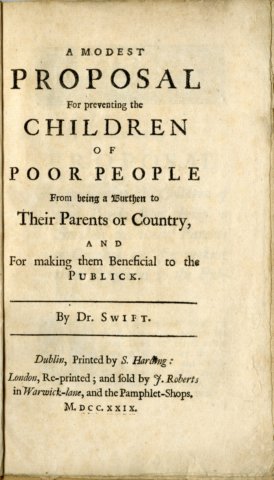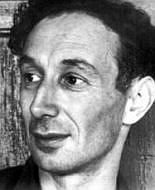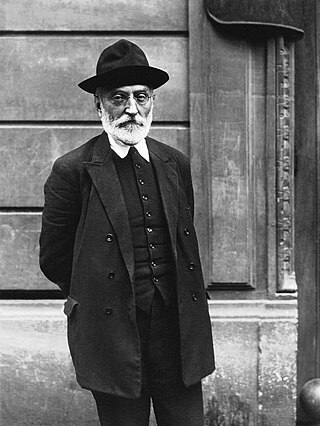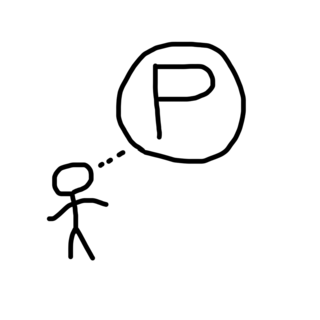What I Believe may refer to:
- What I Believe (Tolstoy book), 1885
- "What I Believe" (E. M. Forster essay), 1938
- "What I Believe", a 1925 essay by Bertrand Russell
What I Believe may refer to:

A Modest Proposal For preventing the Children of Poor People From being a Burthen to Their Parents or Country, and For making them Beneficial to the Publick, commonly referred to as A Modest Proposal, is a Juvenalian satirical essay written and published anonymously by Jonathan Swift in 1729.
Agnosticism is the view or belief that the existence of God, of the divine or the supernatural is unknown or unknowable. It can be categorized as an indifference or absence of firm beliefs in Theistic religions and Atheism on that basis. Another definition provided is the view that "human reason is incapable of providing sufficient rational grounds to justify either the belief that God exists or the belief that God does not exist."

Sir Alfred Jules "Freddie" Ayer, usually cited as A. J. Ayer, was an English philosopher known for his promotion of logical positivism, particularly in his books Language, Truth, and Logic (1936) and The Problem of Knowledge (1956).

The Golden Rule is the principle of treating others as one wants to be treated. Various expressions of this rule can be found in the tenets of most religions and creeds through the ages. It can be considered an ethic of reciprocity in some religions, although different religions treat it differently.

Ralph Waldo Emerson, who went by his middle name Waldo, was an American essayist, lecturer, philosopher, abolitionist, and poet who led the transcendentalist movement of the mid-19th century. He was seen as a champion of individualism and a prescient critic of the countervailing pressures of society, and his ideology was disseminated through dozens of published essays and more than 1,500 public lectures across the United States.

Thomas Reid was a religiously trained Scottish philosopher best known for his philosophical method, his theory of perception, and its wide implications on epistemology, and as the developer and defender of an agent-causal theory of free will. He also focused extensively on ethics, theory of action and philosophy of mind.

William James was an American philosopher, historian, and psychologist, and the first educator to offer a psychology course in the United States. James is considered to be a leading thinker of the late 19th century, one of the most influential philosophers of the United States, and the "Father of American psychology".

Miguel de Unamuno y Jugo was a Spanish essayist, novelist, poet, playwright, philosopher, professor of Greek and Classics, and later rector at the University of Salamanca.
Moore's paradox concerns the apparent absurdity involved in asserting a first-person present-tense sentence such as "It is raining, but I do not believe that it is raining" or "It is raining, but I believe that it is not raining." The first author to note this apparent absurdity was G. E. Moore. These 'Moorean' sentences, as they have become known, are paradoxical in that while they appear absurd, they nevertheless

Pascal's wager is a philosophical argument presented by the seventeenth-century French mathematician, philosopher, physicist and theologian Blaise Pascal (1623–1662). It posits that human beings wager with their lives that God either exists or does not.

Charles Lamb was an English essayist, poet, and antiquarian, best known for his Essays of Elia and for the children's book Tales from Shakespeare, co-authored with his sister, Mary Lamb (1764–1847).
Voluntaryism is used to describe the philosophy of Auberon Herbert, and later that of the authors and supporters of The Voluntaryist magazine, which, similarly to anarcho-capitalism, rejects a totalitarian government in favor of voluntary participation in society, meaning a lack of coercion and force. This is normally completed through a strict adherence to pacifism, civil rights, and either arbitration or some other mutually-agreed-upon court system between individuals.

A propositional attitude is a mental state held by an agent or organism toward a proposition.
This I Believe was originally a five-minute program, originally hosted by journalist Edward R. Murrow from 1951 to 1955 on CBS Radio Network. The show encouraged both famous and everyday people to write short essays about their own personal motivation in life and then read them on the air. This I Believe became a cultural phenomenon that stressed individual belief rather than religious dogma. Its popularity both developed and waned within the era of U.S. Senator Joseph McCarthy and the Cold War.
"What I Believe" is the title of a 1938 essay espousing humanism by E. M. Forster.
"The Will to Believe" is a lecture by William James, first published in 1896, which defends, in certain cases, the adoption of a belief without prior evidence of its truth. In particular, James is concerned in this lecture about defending the rationality of religious faith even lacking sufficient evidence of religious truth. James states in his introduction: "I have brought with me tonight ... an essay in justification of faith, a defense of our right to adopt a believing attitude in religious matters, in spite of the fact that our merely logical intellect may not have been coerced. 'The Will to Believe,' accordingly, is the title of my paper."

Is Google Making Us Stupid? What the Internet Is Doing to Our Brains! is a magazine article by technology writer Nicholas G. Carr, and is highly critical of the Internet's effect on cognition. It was published in the July/August 2008 edition of The Atlantic magazine as a six-page cover story. Carr's main argument is that the Internet might have detrimental effects on cognition that diminish the capacity for concentration and contemplation. Despite the title, the article is not specifically targeted at Google, but more at the cognitive impact of the Internet and World Wide Web. Carr expanded his argument in The Shallows: What the Internet Is Doing to Our Brains, a book published by W. W. Norton in June 2010.

Camille Anna Paglia is an American feminist academic and social critic. Paglia has been a professor at the University of the Arts in Philadelphia, Pennsylvania, since 1984. She is critical of many aspects of modern culture and is the author of Sexual Personae: Art and Decadence from Nefertiti to Emily Dickinson (1990) and other books. She is also a critic of contemporary American feminism and of post-structuralism, as well as a commentator on multiple aspects of American culture such as its visual art, music, and film history.

Indigenous American philosophy is the philosophy of the Indigenous peoples of the Americas. An Indigenous philosopher is an Indigenous American person who practices philosophy and has a vast knowledge of history, culture, language, and traditions of the Indigenous peoples of the Americas. Many different traditions of philosophy exist in the Americas, and have from Precolumbian times.

Harris Michael Brewis, better known as Hbomberguy, is a British YouTuber and Twitch streamer. Brewis produces video essays on a variety of topics such as film, television, and video games, often combining them with arguments from left-wing political and economic positions. He also creates videos aimed at debunking conspiracy theories and responding to right-wing and antifeminist arguments.